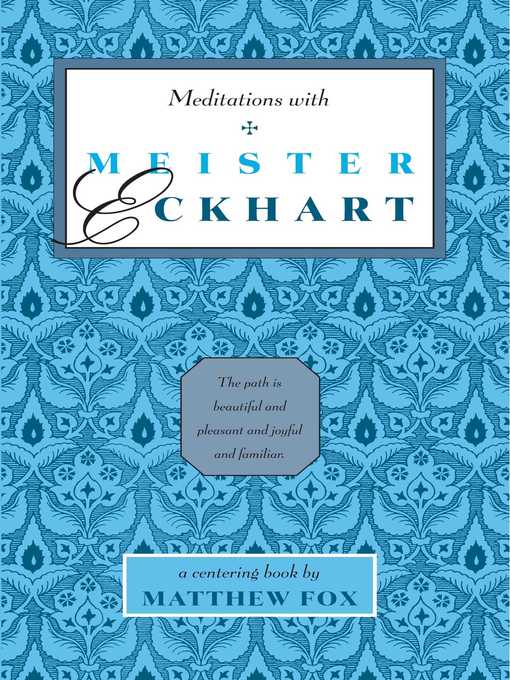- Popular Magazines
- Home & Garden
- News & Politics
- Food & Wine
- Celebrity
- Outdoor & Travel
- Art & Architecture
- Business & Finance
- Crafts
- Family & Parenting
- Boating & Aviation
- Science
- Photography
- See all
-
Description
-
Details
Eckhart's pathway and that of the creation tradition is a simple way. It demands no gurus, no fanciful methods, no protracted exercises or retreats. This is why he called it a "wayless way" that is available to everyone, and why he points out that the person "who has found this way needs no other."

Kindle Book
- Release date: June 1, 1983
OverDrive Read
- ISBN: 9781591438175
- Release date: June 1, 1983
EPUB ebook
- ISBN: 9781591438175
- File size: 757 KB
- Release date: June 1, 1983
Formats
Kindle Book
OverDrive Read
EPUB ebook
subjects
Languages
English
